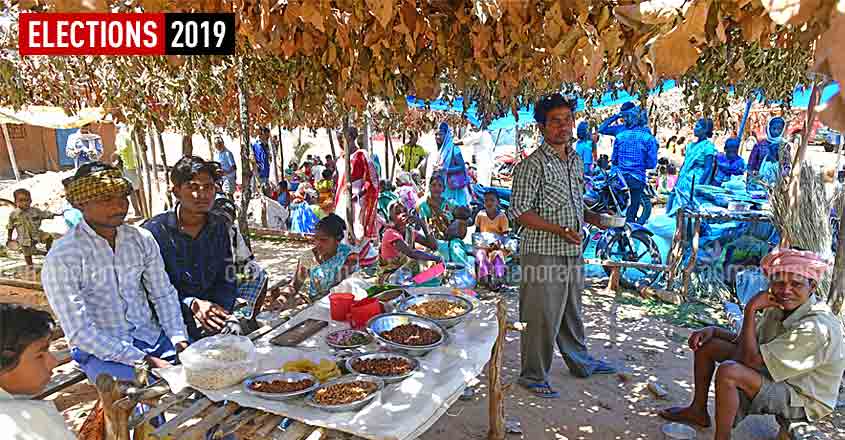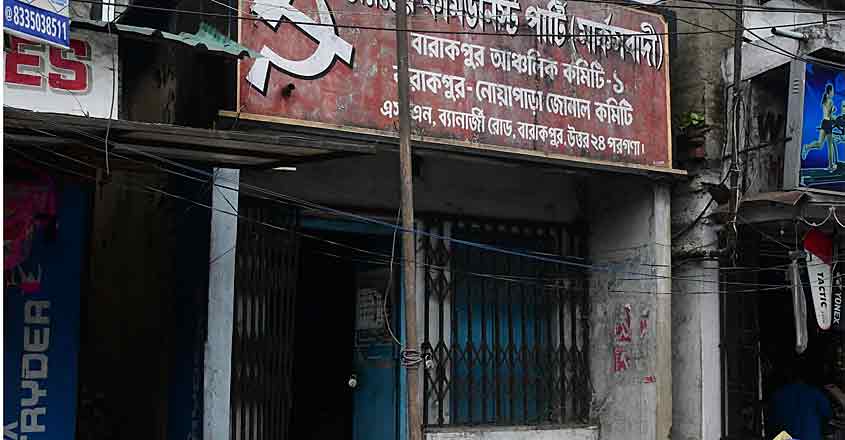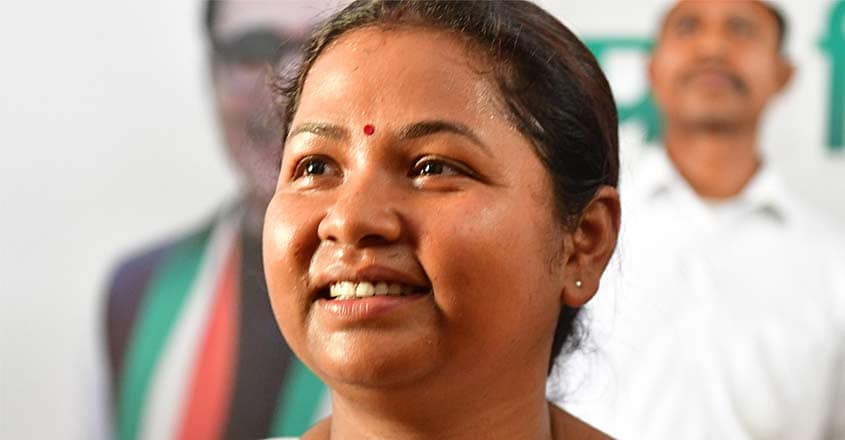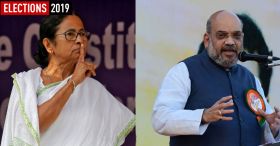
Former railway minister and Barrackpore MP Dinesh Trivedi is busy chalking out tactics with his party colleagues in his dining room. He is in the midst of an election campaign to guard the Lok Sabha constituency for Trinamool Congress. We waited for the candidate to the accompaniment of the mustard oil-flavoured scents of a typical Bengali kitchen.
Trivedi is about to embark on a walkathon electioneering campaign through Barrackpore. “We are only concerned about who will finish second,” he said as he tied the laces of his sneakers. “Left Front’s Gargi Chatterjee is likely to finish second.”
“It is too early to write off the Left. They may be weak yet that party has ruled Bengal for 34 years. They have some people left with them, especially in villages,” Trivedi painted a picture of the contemporary Left.
The CPM office in Barrackpore is empty but for one man. A rare black-and-white photograph of the state party leaders with Lenin and Stalin is showcased in the tiny thatched room. “Trinamool Congress workers shattered this office three times. Theirs is a politics of muscle power. Yet we are on the path to progress. Haven’t you read about the massive rally we organised in Kolkata recently?” He said.
The CPM’s top office in the state bears no sign of an election season. Muzaffar Ahmad Bhawan in the Alimuddin Street in Kolkata, which was once the de facto power centre in the state, is deserted. “The CPM does not even dream of coming back to power,” my Bengali friends said.
The CPM in Bengal suffers from a lack of leadership. After Jyoti Basu and Buddhadeb Bhattacharya, the party did not have a third generation of leaders.

Trinamool Congress won 34 of the 42 Lok Sabha seats in the state in 2014. While the Congress won four, the BJP and the CPM won two each. The Congress has been relegated to a few areas around Malda, North Dinajpur and Raiganj. Even that grip is loosening, judging by Trinamool Congress’s performance in the 2018 local body election.
The Congress' link to Malda was cemented through the late Ghani Khan Chowdhuri, a former railway minister, and his family. His niece Mausam Noor, who successfully contested as a Congress candidate in the previous Lok Sabha election, has switched to Trinamool Congress this time. She is a candidate for Trinamool Congress.
The tight hold of chief minister Mamata Banerjee remains strong in Bengal despite the inroads made by the BJP in Alipurduar, Jaipalguri, Jhargram, Purulia and parts of Medinipur in the local body election.
Jharkhand suffers
Despite its bucolic setting, Chaibasa in Jharkhand is the worst constituency in India in terms of public health. The tribal area was selected for the dubious distinction by a study commissioned by the Harvard University in association with Tata Trust. About 67 per cent of children in the constituency were found to be underweight. Good food is scarce.
The Congress office in Chaibasa was jubilant though. Former chief minister Madhu Koda’s wife Geetha was just announced as the party candidate. She was busy posing for photographs with party workers, in the backdrop of a statue-like figure holding the party flag.

“I am sure I will win. Our alliance is strong,” she said. She belongs to the large Ho tribal community.
Congress leaders in Khunti were equally confident. DCC president Surendra Mishra cited data: “Just add up the votes. Our alliance will win in many places. The poor people look forward to Rs 72,000 offered by Rahul Gandhi,” he said.
The Congress drew a blank in Jharkhand in 2014. Ally Jharkhand Mukti Morcha, led by Shibu Soren, won two seats. The BJP swept the other 12 seats.
This time, the Congress and the Jharkhand Mukti Morchi is joined in alliance by the Jharkhand Vikas Morcha, led by the state’s first chief minister Babulal Marandi. Lalu Prasad’s Rashtriya Janata Dal is also powerful in some pockets.
The road from state capital Ranchi to Chaibasa is winding like the frills on a jalebi. Our first stop on the Jalebi Ghat was a tribal village named Bandgav. The intoxicating mahua flowers and tamarind and other forest produce were heaped over in the weekly market. Pots of rice-distilled country liquor keep the conversation going.
An elder greeted me with a gloomy forecast. “A tragedy is in the offing. They are taking away our rights over the forest that date from the British,” Rusam Munda said.
A youngster was curious to learn that I was from Kerala. Arjun Munda asked me if he and his wife could get a job in Kerala. Poverty and unemployment defines the tribal belt of Jharkhand.




